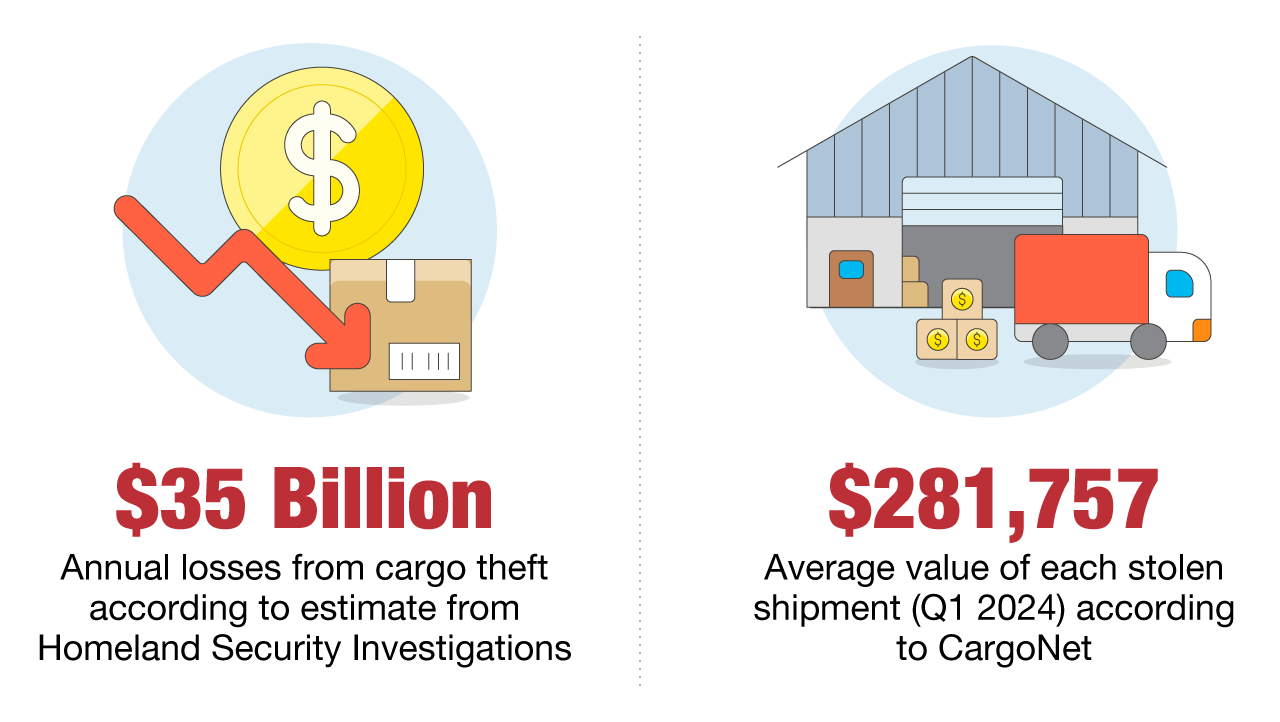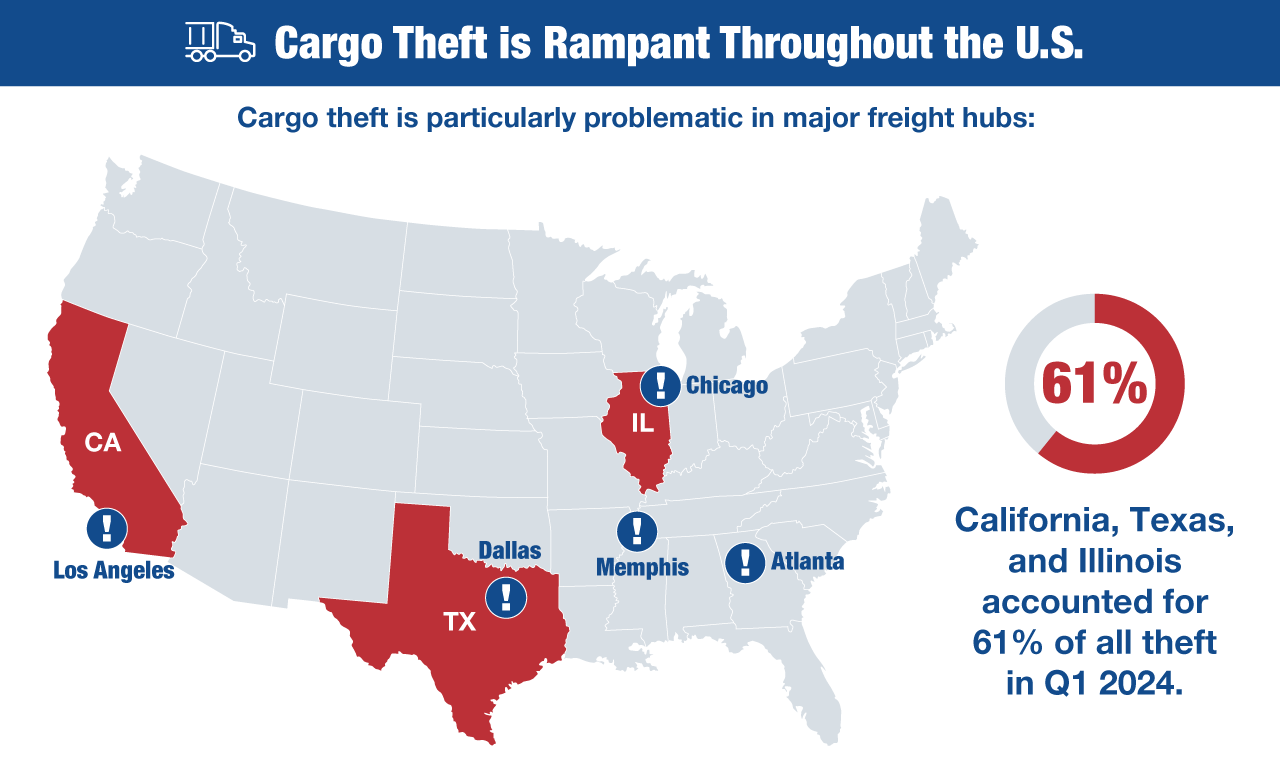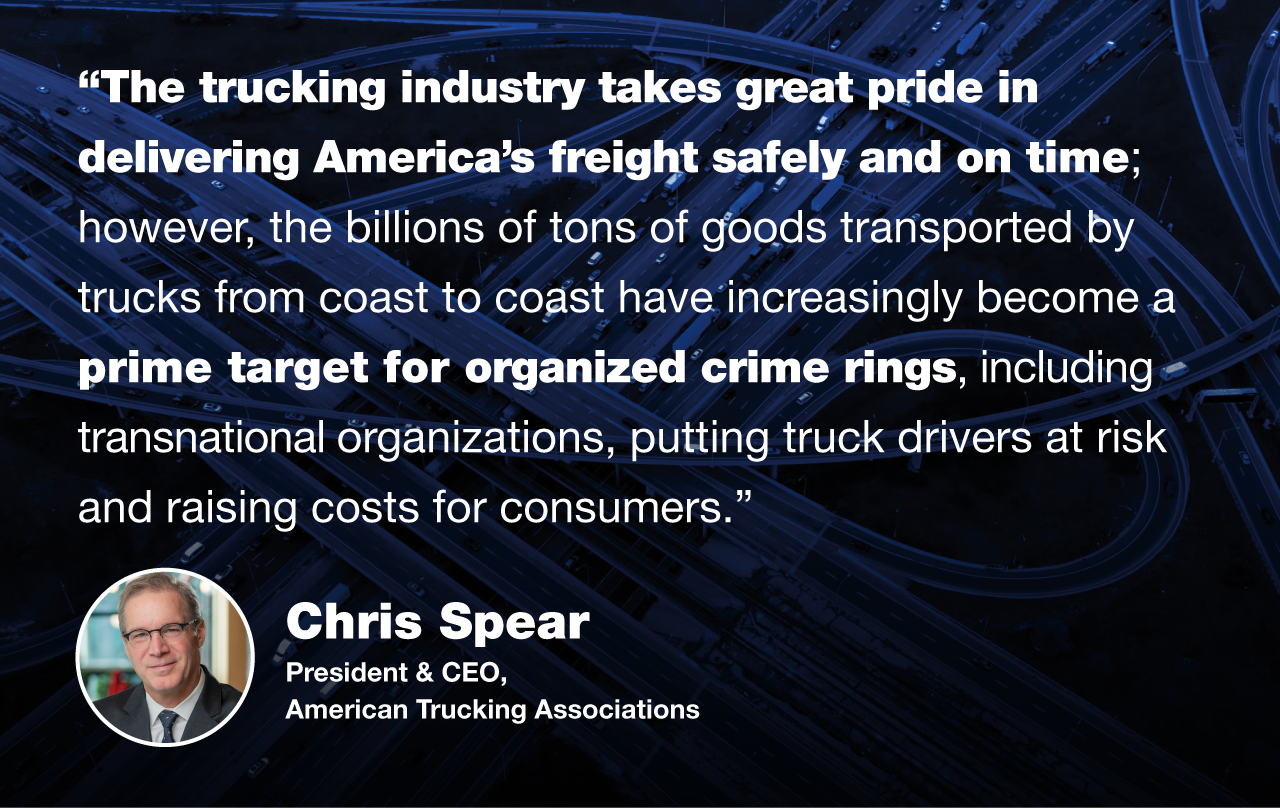ORGANIZED CRIME IS TARGETING U.S. SUPPLY CHAINS:
CONGRESS MUST ADDRESS RAMPANT CARGO THEFT & FRAUD


- Since the onset of the pandemic in 2020, federal, state, and local law enforcement agencies have observed a sharp uptick in cargo theft and fraud in the supply chain. Strategic theft has risen by over 1500% since the first quarter of 2021. Organized Theft Groups (OTGs) are actively exploiting the highly mobile and intermodal nature of the supply chain to illegally obtain goods that are later sold for economic gain.
- OTGs target cargo at every point in the supply chain where goods are in transit and utilize a variety of sophisticated tactics to illegally obtain cargo, including strategic theft, straight theft, fictitious pick-ups, cyber attacks, identity theft, hijacking, hostage freight, and warehouse burglaries, among many others.
- As supply chains have digitized, so too have the theft tactics utilized by OTGs. OTGs can steal freight remotely by exploiting the technology that has been embedded into supply chains to move cargo more efficiently. Because most shipments are brokered via load boards and online platforms, it is relatively easy for OTGs to pose as legitimate brokers or carriers and fraudulently engage in business transactions with unwitting supply chain partners.
- Cargo theft is not a victimless crime. In addition to the thefts that become violent, consumers, local communities, and businesses bear the costs of rising prices. There are also health and safety risks associated with the reintroduction of stolen goods (including agricultural products, food, beverages, livestock, and pharmaceuticals) into the supply chain.

Cargo Thieves Steal Billions. Small Businesses Pay the Price.
Adam Blanchard, the co-founder & CEO of Double Diamond Transport & Tanager Logistics, testified on Capitol Hill to share his experience with cargo theft and urge Congress to act.

Pass the Household Goods Shipping Consumer Protection Act (H.R. 880, S. 337)
- Provides the Federal Motor Carrier Safety Administration (FMCSA) with the necessary tools, resources, and authorities to protect consumers from fraud, while also helping small businesses in the household goods shipping industry protect their businesses and reputations.
- Restores FMCSA’s ability to impose civil penalties against unauthorized brokers and other bad actors, and requires companies operating in the household goods sector to maintain a legitimate place of business.
Pass the Combatting Organized Retail Crime Act (CORCA) (H.R. 2853, S. 1404)
- Establishes the Organized Retail and Supply Chain Crime Coordination Center within Homeland Security Investigations at the Department of Homeland Security to:
– Coordinate federal, state, and local law enforcement efforts against organized retail and supply chain crime;
– Partner with private industry to share threat information and collaborate on investigations;
– Track trends and issue annual public reports; and
– Review and optimize grant programs and training to enhance enforcement.
- Strengthens legal tools for law enforcement by:
– Allowing criminal forfeiture for convictions under 18 U.S. Code § 659 (interstate shipments), § 2314 (transportation of stolen goods), and § 2315 (sale or receipt of stolen goods);
– Enabling prosecution of organized retail and supply chain crime groups using interstate or foreign commerce (e.g., the internet) to facilitate crimes; and
– Permitting aggregation of theft values totaling $5,000 or more over 12 months as a basis for charging under §2314 and § 2315.

Stakeholder Support for CORCA
- American Trucking Associations
- Association of American Railroads
- BNSF Railway
- DHL
- FedEx
- Intermodal Association of North America
- National Association of Manufacturers
- National Milk Producers Federation
- National Retail Federation
- NATSO
- Retail Industry Leaders Association
- Reusable Packaging Association
- Transportation Intermediaries Association
- Union Pacific
- UPS
- U.S. Chamber of Commerce
- U.S. Dairy Export Council
- World Shipping Council